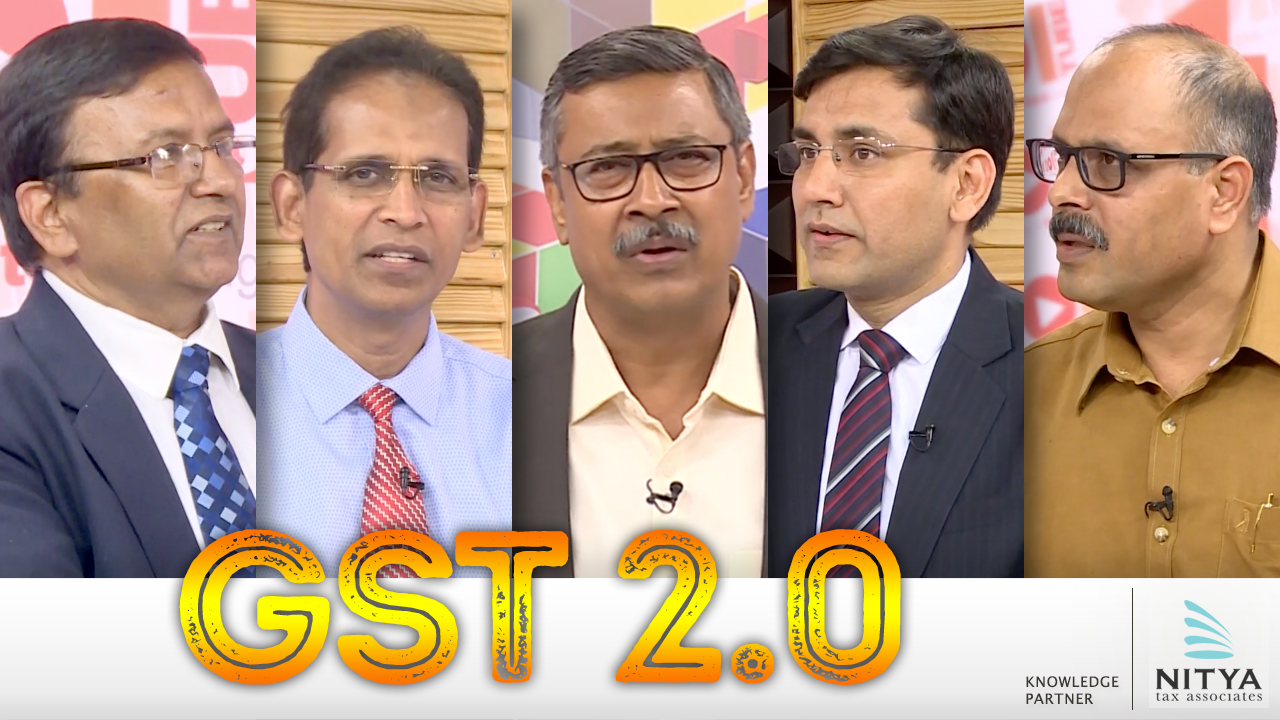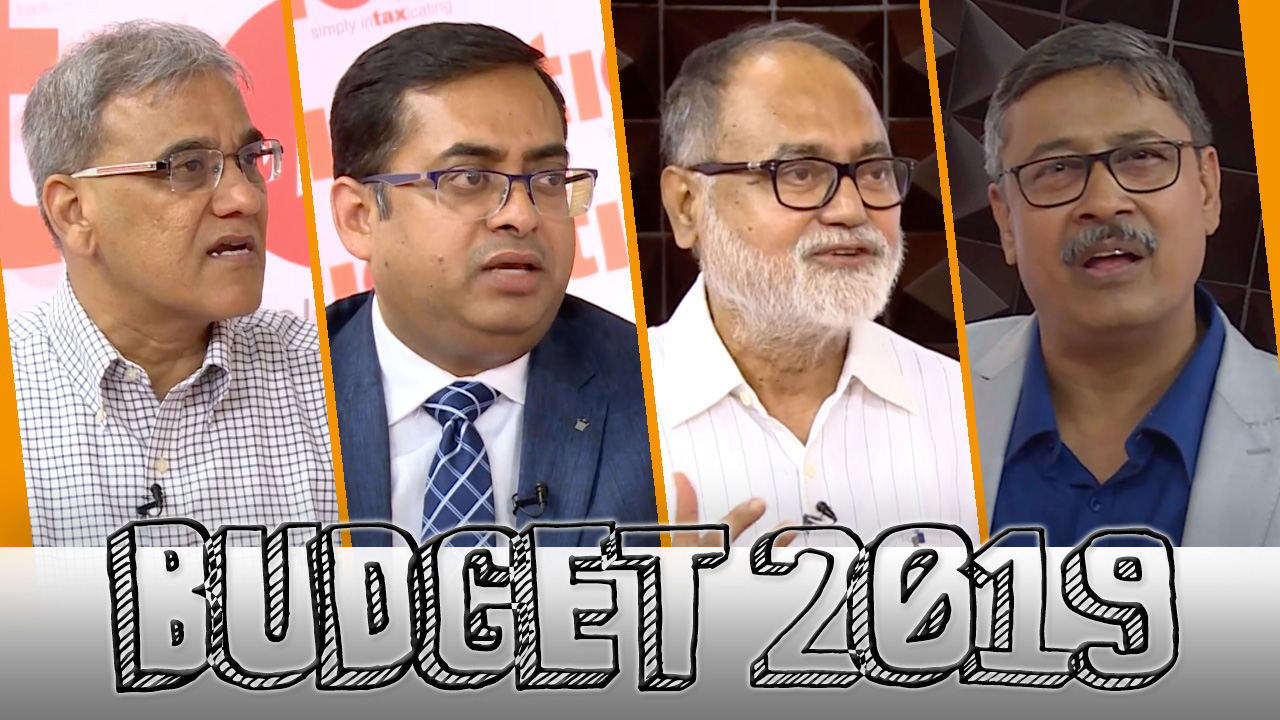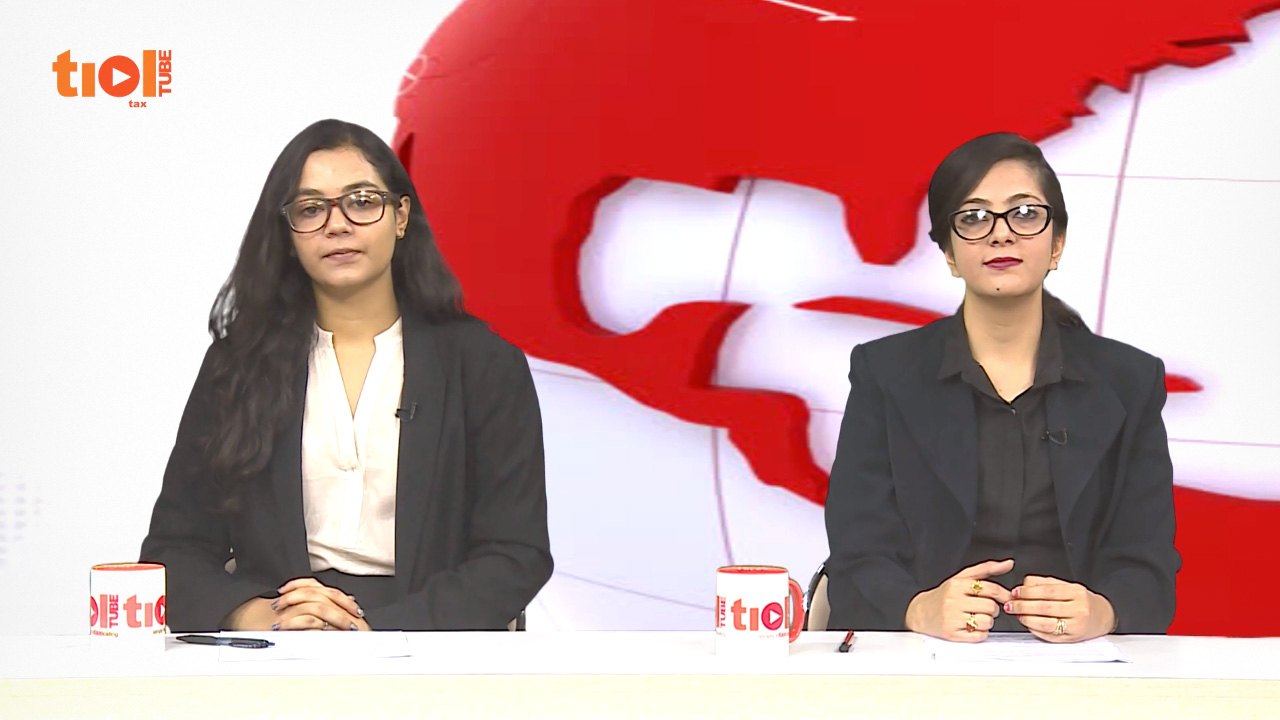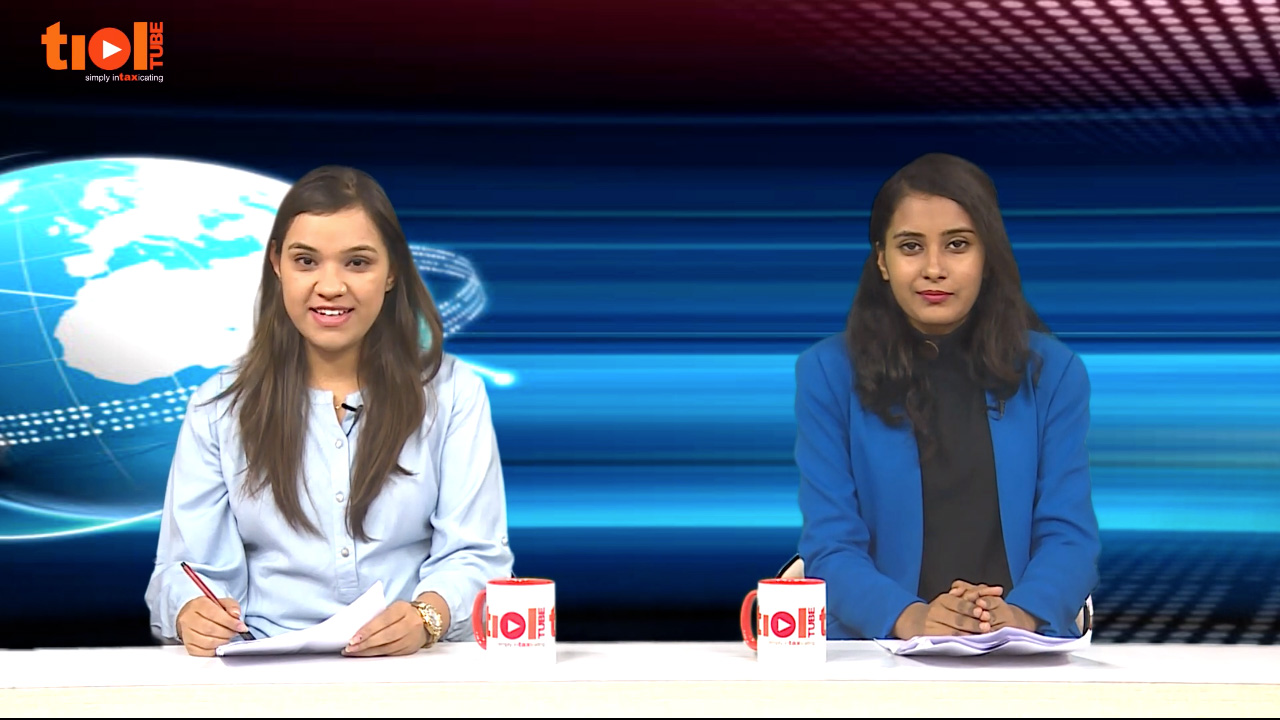|
SERVICE TAX
2019-TIOL-1309-HC-MAD-ST
Doosan Infracore India Pvt Ltd Vs Assistant Commissioner
ST - Refund claims rejected on the ground that the conditions of notification 39/2012-ST have not been complied with - Petitions filed before High Court.
Held: It is nobody's case that impugned orders have been passed without jurisdiction - It is also not anybody's case that impugned orders have been passed in violation of natural justice principles (NJP) - It is certainly nobody's case that the aforesaid alternate remedy by way of an appeal to the Commissioner (Appeals-II) available to the writ petitioner is either ineffectual or not efficacious - Court is of the considered view that writ petitioner has not made out a case for interfering with the impugned orders in writ jurisdiction on the teeth of an available alternate remedy more so when alternate remedy is in the form of an appeal - the grounds that are being canvassed turn on facts i.e., factual disputes and, therefore, this Court is of the considered view that it would be appropriate to relegate the writ petitioner to the aforementioned alternate remedy - It is open to the writ petitioner to seek condonation of delay inter alia by pleading extension of time under Section 14 of Limitation Act and if the writ petitioner chooses to take such a recourse, such applications shall be disposed of on their own merits by the Appellate Authority - Petitions disposed of: High Court [para 18 to 20, 23]
Petitions disposed of : MADRAS HIGH COURT
CCGST & CE Vs DHL Logistics Pvt Ltd
ST - There is no discussion whatsoever in the Tribunal order about the respective contentions raised by the parties - Tribunal concluded that the order of adjudication is bad without having tested the same on the basis of the submissions of the parties - Since the impugned order of the Tribunal is in breach of principles of natural justice, same is set aside and appeal is restored to the CESTAT for fresh consideration and passing an order in compliance with the principles of natural justice: High Court [para 5, 6]
- Matter remanded: BOMBAY HIGH COURT
2019-TIOL-1788-CESTAT-KOL Rawalwasia Manufacturing Company Pvt Ltd Vs CST
ST - M/s. KLM and M/s. RMC are both engaged in similar activities - They are in the business of carrying out Erection, Commissioning or Installation of Towers for cellular companies - As per the contracts entered into with various Telecom Companies, both the assessees were required to supply, fabricate, galvanise and erect the cellular towers at various sites specified by customers - The crux of dispute is regarding the classification of activity carried out by M/s. RMC as well as M/s. KLM - The contracts with telecom companies, involved supply of tower materials and erection of the same at the site - The lower authority, in both cases, have taken the view that the activities would be classifiable under the category of 'Erection, Commissioning or Installation' service - The demand for service tax stands confirmed in the case of M/s. RMC - But in respect of M/s. KLM the same has been dropped by taking the view that the scope of 'Erection, Commissioning or Installation' service will not cover the activity in as much as the towers after erection get embedded in the earth and hence become immovable property - Assessee has also submitted copies of Certificate of Deduction from Payment of Execution of Works Contract - This has been issued under Section 38(3) of West Bengal Sales Tax Act, 1994 - Such certificates which give the indication that the activities carried out are considered as 'Works Contracts' under the West Bengal Sales Tax Act & Rules - A few more certificates are part of the appeal paper book for different periods - From these documents it is evident that the activities carried out are in the nature of 'Works Contract' and hence would be liable for service tax under Works Contract Service w.e.f. 01.06.2007 only and not for the prior period - In respect of M/s. RMC, the period of demand made is up to 31.03.2007; i.e. prior to the date of introduction of Works Contract Service - Consequently, the liability for service tax on such activity may not arise - But for the period in question, the various works contracts executed by M/s. RMC will need to be scrutinized and verified before concluding that no service tax liability survives on the erection activity of transmission towers - For this limited purpose, matter is remanded to the adjudicating authority - Further, in respect of M/s RMC, in addition to the demand confirmed under this category amounts to Rs. 88.00 lakhs, the adjudicating authority has also confirmed the demand of about Rs.10.00 lakhs under category of GTA Service - This demand is not contested by M/s RMC and hence the same is upheld - For delayed payment of service tax under category of GTA Service, M/s RMC will also be liable to pay the interest under Section 75 of the Finance Act, as contended by the Revenue in their appeal - Such interest is payable in addition to Rs.12.00 lakhs - This amount has already been paid and appropriated by adjudicating authority and no reason found to interfere with the same: CESTAT
- Appeal partly allowed: KOLKATA CESTAT
CENTRAL EXCISE
2019-TIOL-1312-HC-MUM-CX
Subray Catal Chem Pvt Ltd Vs UoI
CX - Against o-in-o dated 3 rd August 2015, petitioner had filed an appeal before Commissioner(A) beyond the period of condonable delay of 90 days and which, therefore, was dismissed as time barred; this order was upheld by the Tribunal - petitioner challenges the order-in-original on the ground that that the Assistant Commissioner of Central Excise failed to appreciate that the petitioner has reversed the proportionate Cenvat Credit attributable to inputs used in the exempted goods along with interest and 25% penalty before the issue of Show Cause Notice and had thus complied with the provisions of Rule 6 (1) of the CCR, 2004; that once this credit was reversed on proportionate basis, it was as if the petitioner had never availed Cenvat Credit on the inputs and consequently, the issue of any further payment did not arise; that in any case, since the petitioner had reversed the Cenvat Credit along with applicable interest even before the issuance of SCN, the imposition of penalty upon the petitioner was clearly in excess of jurisdiction; that these grounds necessitate interference with the o-in-o.
Held: Contention as raised, cannot be regarded as a contention within the scope of judicial review - same may have warranted some examination in the exercise of appellate jurisdiction, but not in exercise of powers of judicial review - petitioner delayed the institution of appeal and, therefore, cannot expect that High Court converts itself into an appeal court whilst exercising powers of judicial review under Article 226 of the Constitution of India - contention as raised would require re-evaluation and re-appreciation of factual position and such an exercise cannot be undertaken in the exercise of limited jurisdiction of judicial review - petition was however, instituted only on 29th September 2018 and there is absolutely no explanation for inordinate delay in the institution of the petition - petitioner, far from acknowledging the delay and explaining the same, does not even admit that there is any delay or laches - This is an additional ground for dismissing this petition - Petition dismissed : High Court [para 11 to 13]
Appeal dismissed : BOMBAY HIGH COURT
2019-TIOL-1311-HC-MUM-CX
CGST & CE Vs Toyo Engineering India Ltd
CX/ST - Issue is whether Cenvat Credit of service tax paid on insurance policy is admissible when the policy covers the employees and family members of the employees - Tribunal allowed the credit, therefore, Revenue is in appeal before High Court.
Held : Tribunal held that for the period up to March, 2011, the respondent was entitled to Cenvat credit on service tax paid in respect of the insurance premium for mediclaim policies for its employees - it is clear that the question as proposed by the Revenue does not arise from the impugned order of the Tribunal - The impugned order of the Tribunal was dealing with an appeal filed by the respondent from the order of the Commissioner to the extent it disallowed Cenvat credit of service tax paid on insurance policies taken out for its employees - The impugned order of the Tribunal on facts was not called upon to deal with the issue of taking of Cenvat credit of service tax paid on insurance policy for the family members of the employees - In fact, the Commissioner who passed the order in original dated 17th September, 2014 after considering the show cause notice and the respondent's reply to the same, renders a finding of fact that respondent is taking Cenvat credit of service tax paid on insurance policy covering the health of its employees and which finding of fact has been accepted by the Revenue as is evident from the fact that neither they had filed any appeal nor did they file any cross objection to the appeal filed by the respondent - therefore, the only question that arises is whether Cenvat Credit of service tax paid on insurance policy is admissible when the policy covers the employees - aforesaid question which arises from the order of the Tribunal does not give rise to any substantial question of law as the issue stands concluded in favour of the respondent assessee and against the Revenue by the decision in Axis Bank Ltd. 2019-TIOL-29-HC-MUM-CX - Revenue appeal is, therefore, dismissed: CESTAT [para 8 to 11]
Appeal dismissed : BOMBAY HIGH COURT
2019-TIOL-1310-HC-MAD-CX
Herrenknecht India Pvt Ltd Vs Dy.CCE
CX - The issue herein is whether the process of salvaging parts from a used TBM & remanufacturing scrapped parts & components for re-assembly into a different & unique machine designed for a project-specific purpose, amounts to manufacture u/s 2(f) of the CEA 1944 - The Tunnel Boring Machines (TBM) is used in Metro rail construction - After such machine has been used for its intended purpose, it is bought back for salvage value & not for any functional capability - During the relevant period, the Revenue issued an SCN alleging that such activity did not constitute manufacture & that even though Excise duty was paid on the same, the assessee was ineligible for credit - On adjudication, the original authority sustained the allegations as in the SCN & rejected the rebate claimed by the assessee - Later, the Commr.(A) dropped the proceedings against the assessee - Meanwhile in a similar matter involving an identical issue, the very same activity had been said to constitute manufacture - Such decision had been accepted by the a committee of Chief Commissioners, which proceeded to hold that such activity constituted manufacture u/s 2(f) of the Act - Such decision was also placed before the Commr.(A) in the present matter - However, the Commr.(A) passed an order which recorded findings contrary to such position adopted by the Committee of Chief Commissioners - Hence the present writ petition.
Held - In such circumstances, the Commr.(A) must necessarily be directed to re-look the entire matter in light of the O-i-O passed in the similar matter, wherein it is held that the activity in question qualifies as manufacture u/s 2(f) of the Act & where the same stands accepted by the Committee of Chief Commissioners - Hence the O-i-A stands quashed, with directions to the Commr.(A) to consider the matter afresh, within 3 months' time: HC
Case remanded : MADRAS HIGH COURT
2019-TIOL-1791-CESTAT-AHM
Gail India Ltd Vs CCE & ST
CX - Appellant assessee is engaged in manufacture of mixture of pentane, hexane and small quantities of heavier hydrocarbons like pentane, hexane, heptane, etc. during the processing of natural gas - The said mixture is subject to fractional distillation and one product of such distillation is pentane - Revenue is seeking to classify the pentane recovered during this process under sub heading 2710 11 13 as against the classification 2710 19 00 claimed by the Gail (India) Ltd. - appellant pointed out that the heading 2710 11 13 relates to Special Boiling Point Spirit (SBPS) - Appellant argued that identical matter in case of ONGC was decided by Tribunal - 2019-TIOL-754-CESTAT-AHM; that for a product to qualify as SBPS falling under heading 2710 11 11, 2710 11 12, 2710 11 13, the product must also conform to the definition of 'Motor Spirit' appearing in the Central Excise Tariff - AR contended that to qualify as SBPS falling under sub heading 2710 11 11, 2710 11 12 or 2710 11 13, it is not necessary that product should answer to the description of 'Motor Spirit' - appeal to CESTAT.
Held: It is apparent that if the General Explanatory Note is interpreted in the manner in which Revenue seeks to interpret, "- - -" entry 'Motor Spirit' would become otiose - Similarly the definition of 'Motor Spirit' appearing in clause (a) of supplementary Note to Chapter 27 would also become otiose - Moreover, it is seen that prior to 01.03.2005 the 'Special Boiling Point Spirits' were a "- -" entry immediately preceded by a "-" entry related to 'Motor Spirit' - So prior to 1.3.2005 the SBPS were a sub classification of 'motor spirits' even by revenue's interpretation - Thus the interpretation of revenue would result in no item falling under under the category of 'motor' spirit' and the definition of the term 'motor spirit', and the '- - -' entry relating to it, would become otiose for the period after 1.3.2005 - Any interpretation that makes the specific entry, 'motor spirit' and its definition appearing in supplementary notes, otiose, cannot be the correct interpretation - In above circumstances, it is apparent that even after 01.03.2005, the Special Boiling Point would have to answer to the description of 'Motor Spirit' just the way it was prior to 1.3.2005 - appeals of M/s Gail (india) Ltd. are allowed and the appeal of Revenue, solely being on limitation, is dismissed: CESTAT [para 4.4, 4.5, 5]
- Assessee appeal allowed/Revenue appeal dismissed: AHMEDABAD CESTAT
2019-TIOL-1790-CESTAT-AHM
Filatex India Ltd Vs CCE & ST
CX - Allegation is that for the period April' 04 to July' 04 appellants have shown the supply of yarn to job workers for getting the fabric manufactured in terms of Rule 12B of the CER and from there cleared the fabric for sale on payment of duty, however, during investigation at the end of job worker and the buyers of the finished goods, it was found that some of the job workers and buyers were not traceable or existing; job workers stated that they did not undertake the job work; transporters whose statements were recorded denied transportation of the fabric - investigations, therefore, concluded that the transaction of manufacture of fabric and its sale, receipt of consideration towards sale were mere paper transactions; that no grey fabrics were manufactured from the yarn cleared without payment of duty and the yarn allegedly had not been used for manufacture of fabric but was diverted and sold elsewhere - SCN invoked extended period of limitation and demanded duty on such yarn and its confiscation along with imposition of penalty - charges upheld in adjudication, therefore, appeal before CESTAT.
Held: Only on the ground that some job workers could not be found or that some of them refused to have done job work, it cannot be concluded that no activity of job work manufacturing of fabrics was undertaken - so also, statement of few transporters that they did not transport the fabric cannot be a ground to hold that no fabric was manufactured as the main job workers have accepted the manufacture of fabric on job work - There are no evidences that job work charges paid by the Appellant to the job workers flowed back to them - Even if some of the buyers of the fabrics could not be found, it cannot lead to the conclusion that the Appellant did not sell the fabrics to such parties - It is also not shown that if such fabric was not manufactured from the yarn in question then from what other source the Appellant procured yarn to manufacture the fabric - Majority of job workers, i.e. 5 job workers out of 6 investigated, have accepted the job work manufacturing of the fabrics from the Yarn supplied by the appellant - No single evidence has been adduced by the Revenue to show that the Appellant had cleared yarn from their factory for sale as such and thereby evaded central excise duty - Not a single buyer of yarn has been identified by the Revenue nor are there any statements of the employee, authorized signatory or the director of the Company that the Appellant had cleared any yarn clandestinely and it is coupled with the fact that no consideration has shown to have been received by the Appellant - There are no evidences of transportation of yarn from the Appellant's factory or its diversion - It is a settled law that the allegation of clandestine removal should be based upon clinching evidences whereas in the present case, not a single evidence of clearance and sale of Yarn by way of any evidence in the form of clearance of yarn, identification of buyers, receipt of consideration and any single paper supporting the allegation of the revenue has been found - demand against the Appellant concern is not sustainable - impugned order set aside and appeals of assessee as well as co-noticees/co-appellants also allowed: CESTAT [para 14 to 16]
- Appeals allowed: AHMEDABAD CESTAT
2019-TIOL-1789-CESTAT-ALL
Frontier Alloy Steels Ltd Vs CCE
CX - Grounds of allegations in the present case as also in their Kanpur unit is based upon the same set of records, which were recovered by the visiting officers from the Kanpur unit - While demanding duty from Kanpur unit, on the allegations of clandestine removal, it was revenue's own case that they have received the unaccounted raw material from their unit located at Fatehpur i.e. present appellant - In the present appeal also it is the revenue's case that the appellants have cleared their final products i.e. Ingots & Billets to their unit located at Kanpur, who has further utilized the same for clandestine manufacture and removal - It is seen that the allegations as also the evidences in both the cases are interconnected - As the Tribunal has set aside the demand against the Kanpur unit, this fact leads to the inevitable conclusion that the Tribunal has not agreed with the revenue's stand that the Kanpur unit was receiving raw material from Fatehpur unit - This would mean that the raw material was never cleared from the Fatehpur unit, in which case the charges of clandestine removal from the Fatehpur unit to the Kanpur unit cannot be upheld - On this ground itself, Bench holds that the duty demand against the manufacturing unit is not sustainable - Demand of CE duty is set aside the along with setting aside the penalties on the manufacturing unit as also on all the Directors - Appeals allowed with consequential relief: CESTAT [para 7, 8]
- Appeals allowed: ALLAHABAD CESTAT
CUSTOMS
2019-TIOL-1308-HC-MUM-CUS
Additional Director General Directorate of Revenue Intelligence Vs Knowledge Infrastructure Systems Pvt Ltd
Cus - Revenue is in appeal against the CESTAT order dated 31.05.2018 allowing the appeals of the importer - It was inter alia held by the Tribunal that determination of a value without sequential application of the Customs Valuation Rules, 2007 with valid justification for bypassing rule 5 and 6 of the said Rules is not tenable; that there is no allegation of any legally recognized relationship between the Hong Kong entities and the importer.
Held: It is evident from the SCN that before the Revenue could come to the conclusion that there has been a mis-declaration of value in terms of Section 111(m) of the Act, the valuation of the imported goods as declared in the bill of entry has to be re-determined in terms of Customs Valuation Rules, 2007 - It is only on this re-determination of the valuation of imported goods which involves assessment of goods for the purposes of duty (which would include nil rate of duty) that the occasion to proceed further to allege that the valuation declared in the bill of entry did not correspond with the valuation of the imported goods - Thus, before Section 111(m) could be invoked, the exercise to be carried out by the Revenue would be to re-determine the value of the goods declared by the respondents in the bill of entry - Section 130 of the Act ousts the jurisdiction of this Court with regard to any order relating to, amongst other things, to determination of any question having relation to the rate of duty of the custom or to the valuation of goods for the purpose of assessment - Thus, even if one of the questions involved in the appeal has a relation to valuation of goods for the purpose of assessment, then, the jurisdiction of this Court is ousted - The provisions of Section 14 of the Act, which was relied upon by the appellant does not negate the prohibition of this Court exercising jurisdiction under Section 130 of the Act - The basis of the entire proceedings is re-determination of the valuation of the imported goods from that declared by the respondents and accepted by the Revenue - Thus, the correct valuation of the imported goods as declared in the bill of entry for the purpose of assessment is an issue that is directly arising in this case - Appeal not maintainable: High Court [para 6, 8]
Appeal disposed of : BOMBAY HIGH COURT
2019-TIOL-1787-CESTAT-KOL
Paradeep Phosphates Ltd Vs CGST, CE & C
Cus - The assessee is engaged in manufacture of chemical fertilizers and has imported Rock Phosphate for use of manufacture - Contracts with overseas suppliers contain price variation clause on account of annual discount/quantity rebate, determined after end of the contract period - The Bills of Entry were filed and duty was paid on the price as per Bill of Lading, which is higher - Annual discount/quantity rebate, resulted in reduction of price/assessable value under Section 14 of Customs Act, 1962 - Refund claims were filed along with all the documents including BRC - The claims were rejected on the ground that the assessments are final and as such, refund claims are not maintainable - After completion of the contract period, and as a result of price negotiation between the parties, the quantity rebate/price discounts were determined - Thereafter, assessee raised debit notes on the foreign suppliers, consequent upon which the differential amount was refunded to the assessee, through the authorised banking channel - This fact is also not under dispute - In all the thirteen cases, the bills of entry were presented, following the self assessment procedure in terms of Sectin 17 (1) of customs Act, 1962 and customs duty was accordingly paid on the value, as shown in relevant bills of lading - Upon determination of quantity rebate/price discount, the foreign suppliers refunded the differential amount - The amount refunded by foreign suppliers, had consequential impact on valuation of imported goods - As a consequence, the value of imported rock phosphate was reduced by the amount of refund - Such reduced value represented the transaction value of imported Rock Phosphate, in terms of Section 14 of Customs Act - The refund claim was rejected mainly on the ground that the assessment made by assessee in Bill of Entry reached its finality, which they have not challenged - The Tribunal in case of Lalit Kumar after considering the decision of Priya Blue Industries Limited 2004-TIOL-78-SC-CUS, dismissed the appeal filed by the Revenue - The impugned orders cannot be sustained and accordingly, the same are set aside: CESTAT
- Appeals allowed: KOLKATA CESTAT |










